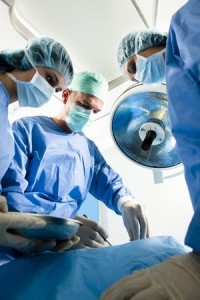
Technology continues to move and change rapidly, opening doors and creating possibilities that, at one time, only existed in the imagination. While technological advances impact nearly every industry, they have a significant impact on the health care industry. Technology makes our lives easier in many respects, but the rapid technological advances in health care are leaving some to wonder: are all these technological advances helping or hurting patient safety? In many situations, a technology’s improvements to patient care come at a price. For instance, many clinicians now use mobile health technology to communicate among medical teams, collect data at a patient’s bedside, and monitor patients more efficiently. Despite the fact that enhanced communication and more timely alerts are improving patient care, there are several downsides to mobile health technology that puts patient safety at risk. For instance, as this article indicates, alarm fatigue – when health care providers become desensitized to the constant noise of alarms or turn off the alarms all together – was one of the biggest technology hazards in 2013 and will remain a top concern for 2014. Technological advances also carry security concerns, as well. As this Forbes article points out, many medical devices are vulnerable to cybersecurity breaches through the internet, infected flash drives, or other wireless technology, which could result in malware accessing patient data, monitoring systems, and implanted devices. Older medical devices are the most vulnerable to cybersecurity risks, especially if medical device manufacturers fail to provide timely security updates or if the devices are not updated by the medical facility or the patient. One technological advance that seems to have the clearest beneficial impact on patient safety is the introduction of electronic health records. Research shows that electronic health records “improve quality and safety and, as a result, prevent adverse events.” While some fear that electronic medical records could create a false sense of security, supporters of electronic medical records say they cut down on medical errors and promote patient safety by making it easier for doctors to communicate with one another and to identify potential problems, such as medication conflicts and allergies. The Chicago medical malpractice lawyers at Steinberg, Goodman & Kalish are committed to protecting the public from substandard medical care and helping the victims of medical malpractice obtain full and fair financial compensation for their injuries. If you have been the victim of medical negligence, contact the Chicago medical malpractice lawyers at Steinberg, Goodman & Kalish to schedule a free consultation to discuss a possible medical malpractice claim. Steinberg Goodman & Kalish (www.sgklawyers.com) is dedicated to protecting victims and their families. We handle medical malpractice, product liability, personal injury, wrongful death, auto accidents, professional negligence, birth trauma, and railroad law matters. Contact us at(800) 784-0150 or (312) 782-1386.

